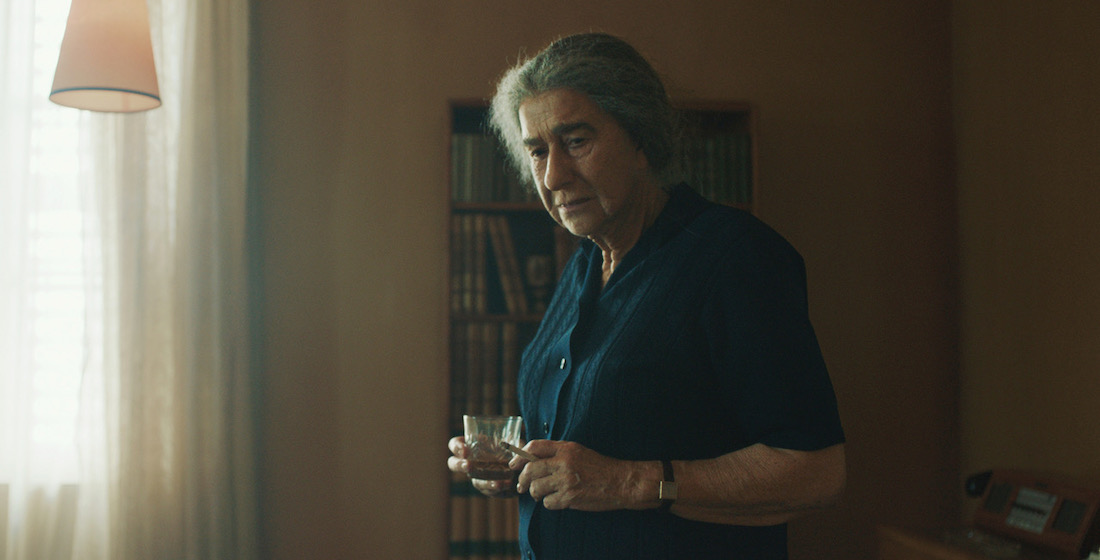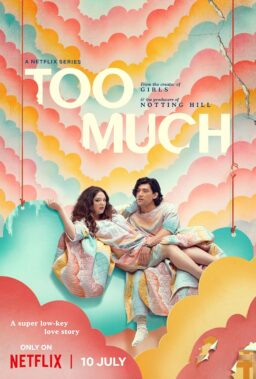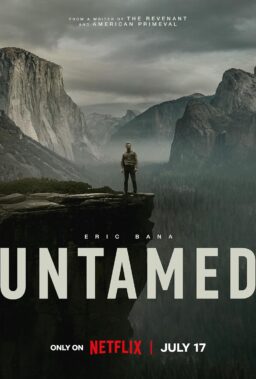Israeli director Guy Nattiv says that people today either have no idea who Golda Meir is or think her career as Israel’s fourth Prime Minister ended in disgrace following the Yom Kippur War of 1973.
His film, “Golda,” with Dame Helen Mirren in the title role, does not try to follow her entire life from pogroms in what is now Ukraine to growing up in Milwaukee, Wisconsin, to settling in what was then Palestine in 1921 and working to create Israel as a Jewish country. Instead, the focus is on the Six-Day War and her appearance before a tribunal called the Agranat Commission to justify her handling of the war.
In an interview, Nattiv talks about the crucial scenes with Meir and then-Secretary of State Henry Kissinger, played by Liev Schreiber, and about how recently released documents create an opportunity for a deeper appreciation of Meir.
You have a very dramatic introduction of your title character.
Yes, the first shot is the extreme close-up of the lips and the inhale and exhale of a cigarette, and then there’s a front shot of her looking at us for almost a minute and then behind her back. What I wanted to start with is an agonized woman on the verge of basically dying. It’s the last moment. It’s a requiem for Golda. She’s destroyed. She’s broken. She’s in misery. And it’s one second before she’s going to the Agranat Commission that’s going to basically operate on her. It’s like a dead man going to an operation room for me. And also facing the anger of the people, the Israeli people that blame only her, not anyone else, blaming the only woman in the room for the mistakes of others.
The extreme close-ups that I’m using in the beginning and the rest of the movie are basically also a metaphor for the desert, for the Sinai Desert, because Golda’s skin was like the desert. It was dry and felt yellow almost. Instead of going to the desert and seeing the war, we feel it on her skin, on her body.

It is a challenge to tell the story of an individual’s impact on history.
When I was ten, I was blown away by Richard Attenborough, this massive film about Gandhi. And I didn’t know anything about him. And I learned so much. And then it happened to me again when I saw “The Last Emperor” by Bernardo Bertolucci. This was a phenomenal movie. And these films educated me. And I felt very emotional towards these characters.
Today, we have two groups of people, right? People who do not know even who Golda is, and people who think Golda is an ice cream. Because in Israel you have Golda ice cream. So they think, “Oh, they’re doing a movie about ice cream. That’s nice.” No. I want them to open their mind and go into an hour and a half to just dive into 1973 and to understand this woman on an emotional level. And then, people who do know who Golda was and don’t know much about her, I want them to understand that she was an emotional, funny, yet agonized woman, that she was the wrong person in the wrong time, in the wrong place. It’s almost like a sliver of getting into the time tunnel to spend an hour and a half with this woman and understand how she felt as an isolated, sick, and desperate lady who had the composure. And she was the grown-up in charge in front of these commanders who were misogynists and got a giant slap after they thought they were the kings of the Middle East after the 1967 war, the Six-Day War.
How is Golda’s story taught, and what is taught about her in the schools in Israel?
Golda was a face on a 50-shekel bill. In the school system, it was kind of a shame to talk about her as the leader, the founder mother of our time, because she was the scapegoat of this war. They blamed the woman in the room. It was very convenient.
And so, she wasn’t somebody that you needed to learn about. It’s like Nixon, in a way. But guess what? Ten years ago, all the declassified documents came out because it was time. And suddenly, when we saw what went down there, we understood she was not the one to blame. There were a lot of dysfunctional commanders around her that did her wrong and led her to a debacle. She was honest enough to take responsibility and said, “It’s on me.” Show me a leader that will do it now. She resigned. But the narrative has changed. And this film is celebrating a new narrative on Golda.
I’m very, very impressed with the makeup job. It does not seem to interfere with Dame Helen’s performance.
I know. Isn’t she amazing? I’m going to just praise my actress, my main actress here. This 78-year-old wonderful woman woke up at 4 a.m., At 4:30, she was in the trailer when all the crew, the director, and everyone was asleep in our nice hotel. She finished the makeup, becoming Golda, the transition, at 7:30 a.m., when we just ate our breakfast, and she was ready to go. When we went home around 10 or 11, she went back to the trailer and took all the make-up off, becoming Helen again. And that took another two hours. And not one inch of complaint. She was just a force of nature, this woman. And I was like, wow. I did not see her as Helen throughout the 35 or 37 days of shooting. I told her, “I forgot what you look like because you are so Golda to me.”
One day I really felt terrible. I had a stomach ache, and I was sick. And I tried to hide the fact that I didn’t feel good. And I sat in front of the monitor, and I played like business as usual. And suddenly, I feel this soft hand on my shoulder, and I look up, and I see Golda. And she said, “Guy, dear, I’m going to go Golda on you right now. Are you drinking? Are you eating enough? You look pale. You look sick.” I said, “Who are you? What?” And she said, “Do you want my assistant to bring you something? Are you okay?” And I was like, this is bizarre. This is surreal what’s going on right now. So, yes, she was Golda, 100 percent and more with all of us. Because Helen and Golda are both very human, very compassionate about other people, both the grown-up in charge. And she was the grandma of our production.

To me, the most interesting relationship in the film was between Golda Meir and Henry Kissinger.
We didn’t find our Kissinger. And Liev, I adore him. We were in touch about another film. I offered him the role, and he said, “Well, how would I? It’s such a huge thing to do, to come for only two days to shoot those scenes and go back.” I said, “You know what? I have a great idea. Why don’t you meet Kissinger in New York?” He said, “How would I do that?” I said, “Don’t worry, we’ll have some connections.”
So, miraculously, two days before shooting the movie, before he got on the plane, before shooting his scenes, he met with 101-year-old Henry Kissinger in his apartment in New York, and they sat for two hours and just spoke and spoke and spoke. And actually, Henry was the one who gave him the line, “In Israel, we read from right to left.” He charged him with so many quotes and ideas. And I think that at that Liev came really prepared and so accurate after he met Henry. And I remember he came, and he said, “Listen, I’m so tired, and I’m jetlagged, and I don’t know what to do tomorrow.” And Helen said, “You know what, Guy and Liev, come to my hotel, and let’s just run lines.” They read lines for an hour, and after that, she said, “Liev, dear, how do you feel now?” And he told her, “Excellent!” And then they just launched into their scene a day after. And I was just in my seat. I was like, “Oh my God, these two people are geniuses. I don’t want to say anything. Just go. Just do that.” And they really enjoyed doing it. You can see how fun it was for them to play that. You can make a movie only about Kissinger and Golda’s relationship. Like “Frost/Nixon.”
Absolutely. I would see that movie in a minute.
It’s very emotional.
“Golda” will be in theaters starting August 25th.












